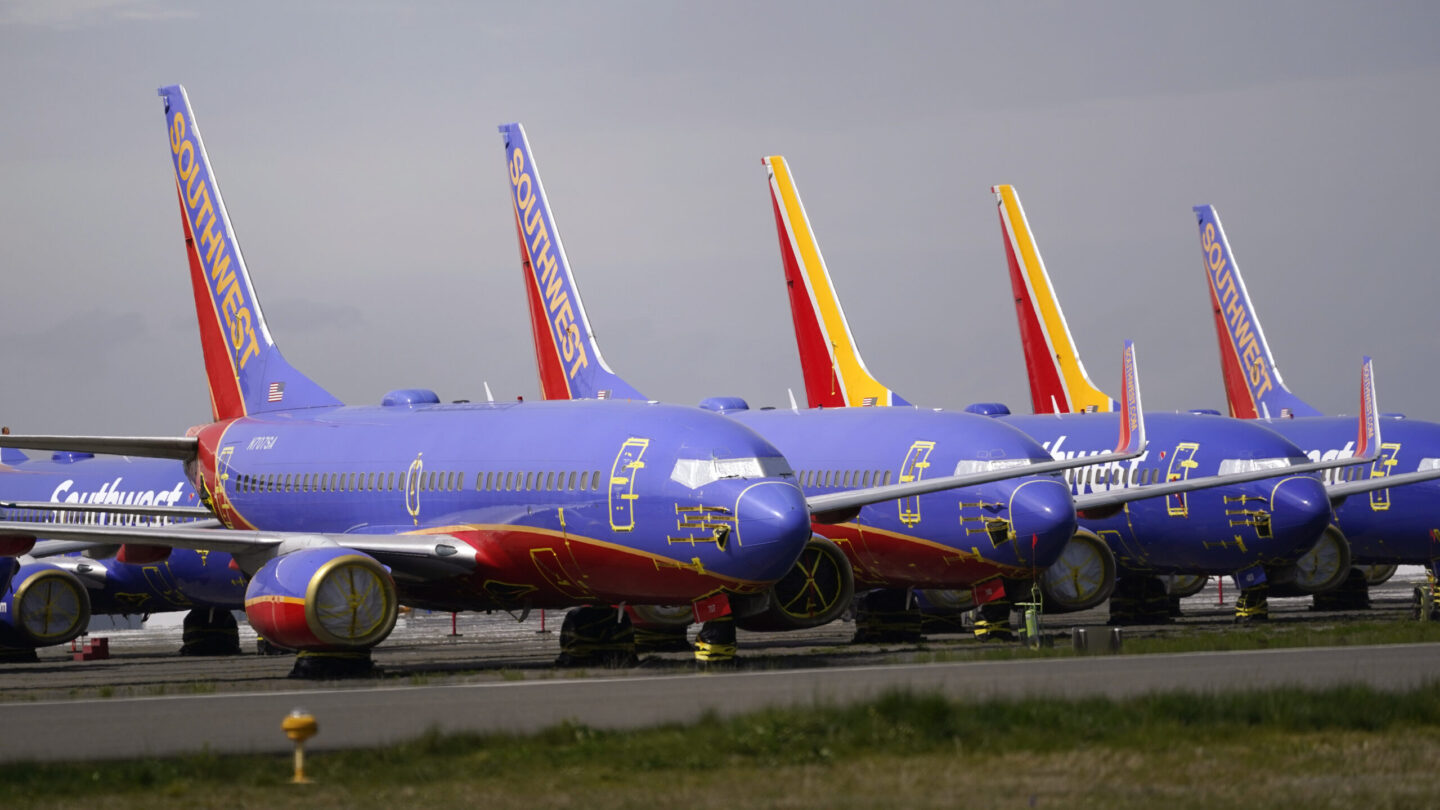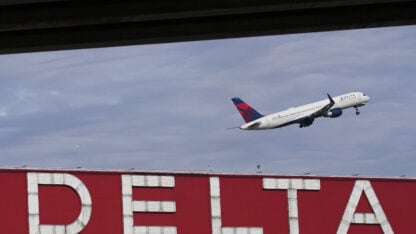Southwest Airlines will limit hiring and stop flying to four airports as it copes with weak financial results and delays in getting new planes from Boeing.
Both Southwest and American Airlines reported first-quarter losses Thursday. Demand for travel remains strong, including among business flyers, but airlines are dealing with higher labor costs, and delays in getting new aircraft from Boeing are limiting their ability to add more flights.
Southwest said it lost $231 million. CEO Robert Jordan said the airline was reacting quickly “to address our financial underperformance,” including by limiting hiring to critical positions and asking employees to take unpaid time off.
The Dallas-based carrier said it expects to end this year with 2,000 fewer employees than it had at the start of the year. Southwest executives said the airline can cut those jobs through attrition and without furloughs or layoffs.
In August, Southwest will stop flying to four airports: Cozumel in Mexico; Syracuse, New York; Bellingham, Washington; and George Bush Intercontinental Airport in Houston, where the airline’s major operation is at smaller Hobby Airport. Southwest hasn’t left an airport since 2019, when it pulled out of Newark, New Jersey, and consolidated its New York City-area flying at LaGuardia Airport.
Southwest will also cut half of its flights in Atlanta and about one-third at O’Hare Airport, which augments the airline’s main Chicago service at Midway Airport.
The moves will help the airline focus on more profitable locations and deploy a fleet of planes that will be smaller than it had planned. Southwest said it expects to get only 20 new 737 Max 8 jets from Boeing this year, down from the 46 it expected just a few weeks ago. It will offset some of the shortage by retiring fewer planes.
Boeing is struggling with slower production since a door plug blew out of an Alaska Airlines Max 9 in January, and that is frustrating its airline customers.
Dallas-based Southwest said that its loss, after excluding special items, was 36 cents per share. That was slightly worse than the loss of 34 cents per share that Wall Street expected.
Revenue rose to $6.33 billion. That was a company record for the January-March quarter, but it was below analysts’ forecast of $6.42 billion and not enough to overcome rising expenses including a 19% jump in labor costs. Last-minute leisure trips were lower than expected, and some newer markets performed poorly, the airline said.
Executives said Southwest is studying changes in boarding and seating to determine how customers will respond and how much money that could raise. They declined to give details until an investor day in September, but Chief Commercial Officer Ryan Green said bag fees and a curtained-off premium cabin are not being considered. Southwest, alone among major U.S. airlines, doesn’t charge extra for one or two checked bags.
American said it lost $312 million as labor costs rose 18%, or nearly $600 million. The airline said it expects to return to profitability in the second quarter — a busier time for travel — and post earnings between $1.15 and $1.45 per share. Analysts expect $1.15 per share, according to a FactSet survey.
The first-quarter loss amounted to 34 cents per share excluding special items, which was worse than the loss of 27 cents per share forecast by analysts.
Revenue was $12.57 billion.
CEO Robert Isom said American is less impacted by Boeing’s problems because the airline had already received hundreds of new planes in recent years. The airline said eight Boeing jets it expected to get won’t show up this year as planned. American has ordered Boeing Max 10s, a larger model that has not yet been certified by the Federal Aviation Administration, but those planes are not due until 2028.
“I’ve talked to everyone at Boeing that I can possibly address and the message is the same: Get your act together,” Isom said on a call with analysts and reporters. “It starts with producing quality products one at a time off the assembly line … I can’t tell you if they’re making progress or not.”
American has had no problem getting new, smaller regional jets from Embraer. Isom said the Brazilian manufacturer has been “incredibly reliable.”
Shortly after the door-plug blowout on the Alaska Airlines Max jet, travel site Kayak reported a jump in the number of people who filtered their flight searches to isolate the type of aircraft. On Thursday, officials at both American and Southwest said they saw no evidence that Boeing’s well-publicized safety issues are affecting consumers.
Southwest, which has an all-Boeing 737 fleet, said it surveys people who cancel a reservation, and only 1% of that small group blame fear about the plane. The airline also tracks people who look at the type of plane for a flight — whether it’s a Max or a different model of 737 — and says it hasn’t seen much change there either.
“It seems like this is not something that customers investigate in any great deal,” said Andrew Watterson, the airline’s chief operating officer.
Shares of Southwest fell 7%, while American gained 1.5%.









